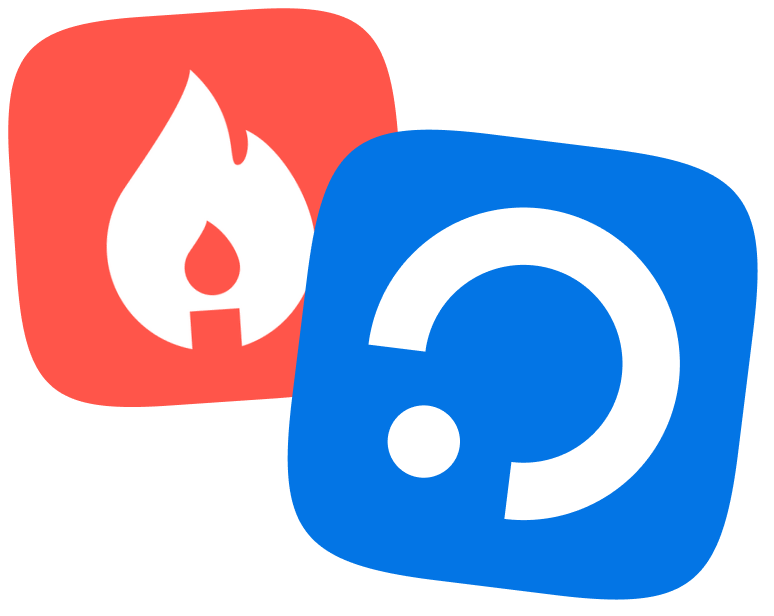
Which Incident Management tool is best for you?
The incident.io alternative for incident response you can trust

Which Incident Management tool is best for you?
Choosing the right incident management platform is crucial for ensuring smooth operations and rapid response times. Both ilert and incident.io can help teams manage incidents and reduce downtime. However, they were built with different goals in mind:
- incident.io started as a Slack-first solution, perfect for teams fully dedicated to Slack (and now Microsoft Teams on certain plans).
- ilert is an end-to-end platform with actionable alerting, broader integration options, status pages, and live call routing.
If your organization needs flexibility, scalability, advanced automation, and a central platform for dispatching alerts, tickets, and phone calls, ilert may be the right choice.
Let’s compare incident.io and ilert to identify the best solution for your incident response.
TL;DR: Why is ilert the best incident.io alternative?
- Faster adoption: No dependency on Slack or Microsoft Teams.
- More automation: AI-powered alert grouping reduces noise.
- Broad integrations: With integrations for popular ITSM and PSA solutions, ilert is ideal for MSPs, IT service providers, and DevOps teams with complex stacks.
- Built-in CI/CD pipelines: Real-time deployment tracking and deployment correlation with alerts.
- Comprehensive call routing: Multi-language IVR menus, PIN codes, block lists, natural voices, and much more to build call routing scenarios of different complexities.
- More powerful free plan: ilert free plan has fewer limitations and offers all critical features needed to ensure a fast incident response.



Why do teams choose ilert over incident.io?
Both incident.io and ilert help businesses manage incidents, improve uptime, and streamline response workflows. However, incident.io is best suited for teams that rely heavily on Slack and Microsoft Teams, handling a moderate number of alerts.
ilert is the go-to incident.io alternative for companies dealing with large-scale alerting, requiring advanced automation, and looking for features tailored to MSPs and IT service providers. If your organization needs a flexible, scalable, and integration-rich incident management solution, ilert is the better choice.

No extra charges for Microsoft Teams
ilert provides ChatOps integrations on all plans, including the Free, and doesn't charge extra for specific chat solutions. On the contrary, incident.io includes Microsoft Teams only in the Pro plan.
Faster adoption with no tool restrictions
Unlike incident.io, which is designed around Slack and Microsoft Teams, ilert allows teams to register and start using the platform immediately without chat tool restrictions.With ilert, teams can use their preferred communication tools, including Slack, Microsoft Teams, Telegram, and Discord. Additionally, ilert is fully functional for teams that have yet to adopt ChatOps, offering a built-in commenting feature at no additional cost.
Built-in CI/CD pipeline integrations
ilert has Deployment Pipeline integrations that automatically send deployment events to your incident management platform. This real-time visibility helps you pinpoint whether a recent deployment triggered an incident, saving valuable time during critical moments.
incident.io lacks built-in CI/CD pipeline support, meaning teams using it must rely on manual tracking or third-party workarounds to correlate incidents with the latest deployments.

Powerful call flows to build complex call-routing scenarios
ilert Call Flow is way more than just a simple call routing. It's a powerful hotline for on-call engineers that enables them to automate incident response, nurture relationships with customers and stakeholders, and deliver fast support in emergency situations. With the drag-and-drop interface, ilert users can build complex scenarios, that include responses in different languages. With ilert, users get a central dispatcher for all critical events, including phone calls.
Smarter alert grouping with AI
ilert platform includes two options: time-based configuration for alert grouping and intelligent grouping employing machine learning to dynamically cluster related alerts. In contrast, incident.io relies on predefined configurations, requiring manual setup and maintenance for alert correlation, and provides a "similar incidents” feature that checks already resolved incidents that happened before.
While ilert AIOps fights alert fatigue and helps to ease the burden at the moment when all goes red, incident.io aims to help in documenting incidents and doesn't target alert overload.




More integrations used by IT teams, tech companies, MSPs, and IT Service Providers
ilert offers a wider range of integrations tailored for companies of different sizes. It has well-known solutions, like Zabbix, Checkmk, AWS Cloudwatch, and many more, to meet the daily needs of IT teams. It also has native integrations with PSA and ITSM solutions that are widely used by MSPs and IT service providers to meet their SLAs.
ilert works as the main source of truth and information when it comes to IT incidents so that engineers can correlate alerts from different sources and run root cause analyses faster. With incident.io, integration options are limited, requiring additional setup to connect with essential developer tools.
Also, ilert inbound integrations, also known as alert sources, are available on all plans, including Free. incident.io limits alert sources to two on the Basic plan.
Audience-specific status pages
ilert allows you to create audience-specific status pages, ensuring that the right stakeholders receive relevant updates during incidents. Whether you need to communicate with internal teams, external customers, or specific enterprise clients, ilert enables you to customize the information each audience sees. Audience-specific status pages also eliminate the need to create several status pages for different clients or stakeholder groups, making it a better option for MSPs and IT service providers. incident.io lacks this level of customization, making it harder to segment communication.

ilert vs. incident.io at a glance


ilert: The flexible incident.io alternative
With ilert, teams gain a powerful, AI-driven incident management platform that seamlessly integrates with existing workflows. Unlike incident.io, ilert provides greater automation, more flexibility, and a broader range of integrations—all without requiring a specific chat tool.
ilert is trusted by companies like
























































































